For millions of people, coffee is an essential morning ritual. Yet, even as green coffee bean prices continue to climb, the specialty coffee scene is thriving—growing, even. These high-end coffees command a premium price, widening the gap between “regular” and “specialty” coffee. But does a cup of coffee that costs $10-12 truly deliver five times the quality of an ordinary cup?

We all understand that smaller-scale, higher-quality products come with higher price tags. But is that the case for specialty coffee? What exactly are we paying for?
It’s true that the price of a specialty coffee isn’t just about the beans—it also covers rent, barista wages, and a personalized café experience. However, in many cases, the price of coffee at specialty cafés is significantly higher. These cafés source a variety of beans, and their selling price can be 3 to 5 times that of a regular café. So, what makes specialty coffee so expensive, and why are customers willing to pay more for it?
The Willingness to Pay for Coffee—A Generational Shift
According to empower.com, 62% of millennials are willing to spend $7 per day—or $210 per month—to satisfy their coffee cravings because it brings them joy.
When researching this topic, we aimed to understand why today’s younger generation is willing to pay more for specialty coffee. But when we examined factors such as demographics, ideology, and personal status, coffee itself was no longer the central focus—it turns out that people are willing to pay more for many things beyond just coffee. Still, the more pressing question remains:
Why is specialty coffee so expensive?
Commodity vs. Specialty Coffee: Understanding the Market Dynamics
Historically, coffee has been treated as a commodity, much like rice, sugarcane, or corn. It is the second most traded commodity in the world, just after crude oil. You can even check green coffee prices fluctuating by the second on the New York Stock Exchange.
However, it’s crucial to differentiate commodity coffee from specialty coffee. Specialty coffee represents only about 4% of the market, yet it leads in quality control, ethical sourcing, sustainability, and flavor.
To understand why specialty coffee costs more than regular coffee, we must first examine its production process.
The Story: Investing in the Origin of the Beans
As coffee increasingly becomes an artisanal product, the effort brands put into sourcing their beans matters more than ever to consumers. Today’s coffee lovers care about every aspect of their coffee, from the farm to the cup. Here’s what specialty cafés and their customers are looking for:
-
Arabica vs. Robusta
There are two main types of coffee beans: Robusta and Arabica. Robusta has a neutral to harsh flavor, is easier to grow, and yields faster. Arabica, on the other hand, is the bean of choice for specialty coffee roasters due to its complex and appealing flavor profile. Unlike Robusta, Arabica requires high altitudes, fertile soil, and ample shade to thrive. These conditions make it much harder to cultivate, which increases labor costs and ultimately raises the price. -
Quality Control
Higher-quality coffee beans go through strict inspections to remove defective beans and analyze flavor profiles. Specialty coffee undergoes rigorous selection at every production stage. This means that when you drink cheap coffee, you’re consuming beans that weren’t good enough for a specialty coffee shop.The Coffee Quality Institute (CQI) and the Specialty Coffee Association (SCA) have established stringent standards for specialty coffee—from the farm to the cup. And as a consumer, whether you realize it or not, a portion of what you pay goes toward maintaining these quality standards.
-
Innovation & Experimentation
While commercial coffee farms focus on maximizing output, specialty coffee farmers constantly refine their techniques. They experiment with new processing methods every year, akin to an arms race for quality. The goal is to secure a place in the premium or specialty coffee segment, where they can justify higher prices.
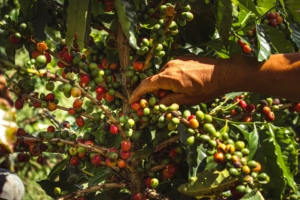
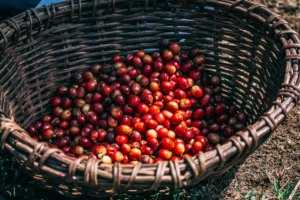
Specialty coffee is produced on a smaller scale, with higher costs at every step of the process—from farming and roasting to brewing and serving.
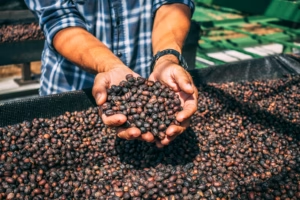
Sourcing & The Story Behind the Coffee
Depending on where and how you source your specialty coffee, prices can vary significantly. Roasters need detailed information about their beans:
- Country of origin
- Farm and lot details
- Variety of the coffee plant
- Harvesting and processing methods
All of these factors contribute to a story that consumers connect with. It’s no surprise that people respond positively to cafés that tell engaging sourcing stories. Whether on marketing materials or packaging, these narratives create an emotional connection with consumers, adding value beyond just the coffee itself.
Beyond The Beans: What Else Makes Coffee Expensive?
There are many cost factors involved in coffee production, including:
- Labor costs
- Shipping and logistics
- Climate change adaptation
However, these costs affect both commodity and specialty coffee, so they don’t fully explain why specialty coffee is more expensive. The key takeaway is that specialty coffee commands a premium because it prioritizes quality over quantity.
Do Higher Prices Mean Higher Quality? Not Always.
Once a coffee qualifies as “specialty,” a higher price doesn’t necessarily mean better quality. Factors such as:
- Rarity
- Unique processing methods
- Advanced roasting techniques
- Barista skill and presentation
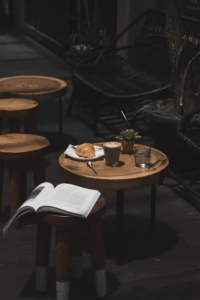
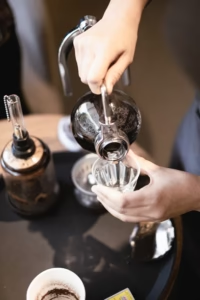
All contribute to inflating the price of specialty coffee. Ultimately, what’s “best” is subjective—it depends on your personal taste.
Why Are People Willing to Pay More?
Almost all specialty coffee costs more than regular coffee. This price difference reflects supply and demand, but what else drives consumers to pay more?
According to Peter Giuliano, Chief Research Officer at the Specialty Coffee Association, specialty coffee consumers fall into two groups:
- The Acceptors (70%) – They seek an overall positive experience and are willing to pay more for coffee that provides it.
- The Connoisseurs (30%) – They focus on details like origin, roast style, and flavor notes.
Many people switch between these two groups throughout the day—grabbing a quick caffeine fix in the morning and savoring a specialty brew in the afternoon.
Ethical Consumption: Paying for Responsibility
70% of consumers are willing to pay more for coffee grown by farmer cooperatives because it gives them a sense of ethical responsibility. This reflects a broader consumer trend—many people want to ensure they aren’t exploiting farmers by buying cheap coffee.
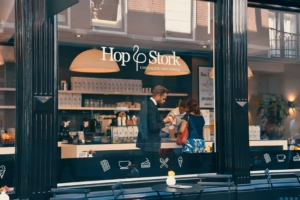
In fact, consumers are willing to pay an extra $1.36 per pound for coffee that is:
- Fair Trade Certified
- Organic
- Country of Origin Labeled (COOL)
The Future of Specialty Coffee Pricing
Not everyone is willing to pay 5–10 times more for a cup of coffee. The global coffee market still demands affordable options. That’s why major coffee chains price their coffee in a way that balances affordability and premium quality.
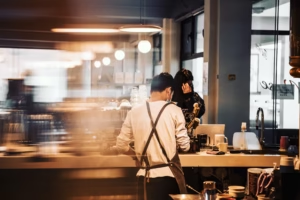
However, the way specialty coffee markets itself can sometimes backfire. By overemphasizing personal stories and farmer struggles, the industry risks becoming too sentimental. At the same time, cheap coffee prices have created a cycle of low wages and poor working conditions.
Ultimately, not all high-priced coffee is truly specialty coffee. The future of the industry depends on how well consumers understand the real value behind the price. If people appreciate what goes into their cup, specialty coffee can thrive for years to come.


